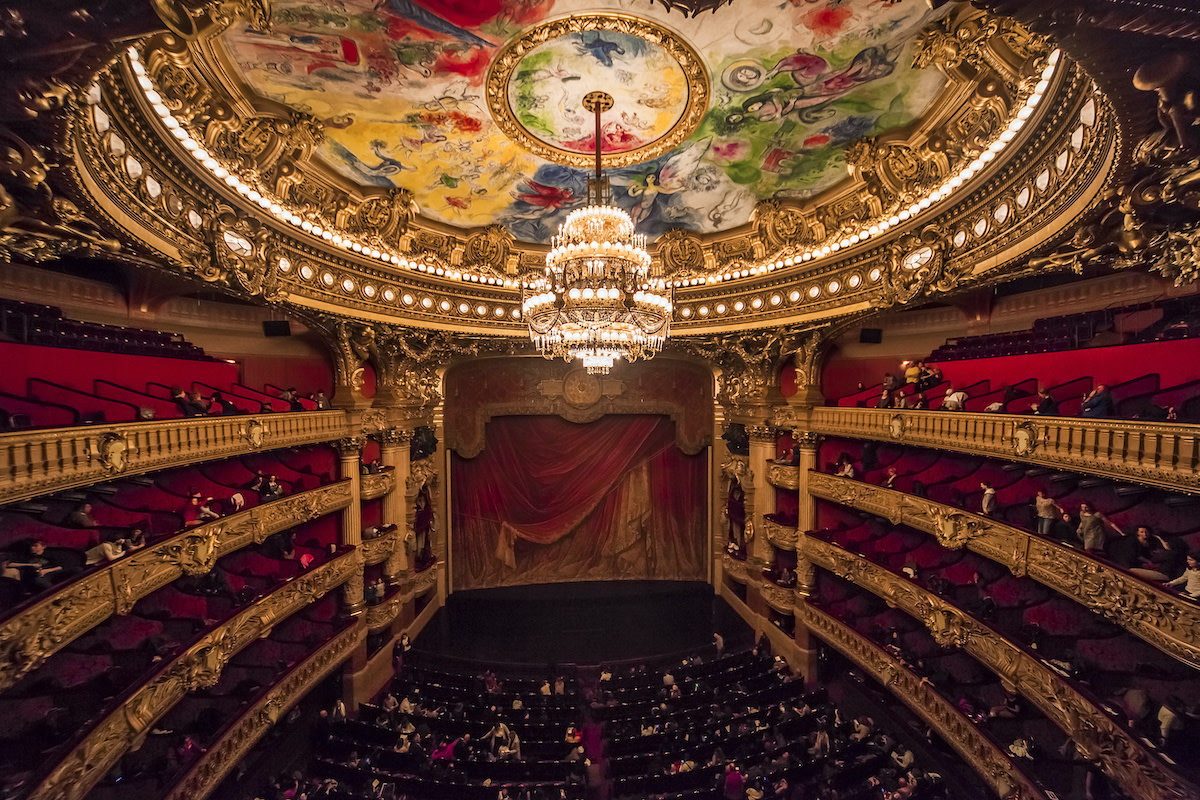Opera Music: A Brief History of Opera
Written by MasterClass
Last updated: Sep 22, 2021 • 4 min read
Opera music is usually performed in a theater and set to classical music. For centuries, opera was among the most popular forms of entertainment in Western culture.
Learn From the Best
What Is Opera?
Opera is an art form that combines theater (both comedic and dramatic) and classical music. In a typical performance, opera singers play roles in the theater productions, which feature a full classical orchestra. Women’s voices fall among contralto, mezzo-soprano, and soprano; while men’s range among bass, baritone, tenor, and countertenor.
There are two types of operatic singing: recitative, which is nearly spoken yet sung to pitch, and arias, which are formal songs interspersed throughout the piece. Unlike musical theater, operatic singing is almost always continuous and does not break for scenes of spoken dialogue.
Opera singers perform librettos, or lyrics to opera music, in many languages; however, opera is most commonly associated with Italy. Composers wrote the first operas in the Italian language, and Italians like Gioachino Rossini, Giuseppe Verdi, and Giacomo Puccini wrote some of the world’s most performed operas. German opera is also renowned, thanks to works by Richard Wagner. Wolfgang Amadeus Mozart composed for both Italian and German librettos.
A Brief History of Opera
Italian composer Jacopo Peri wrote Dafne (1597), often credited as the first formal opera. This catalyzed other composers during the Italian Baroque era.
- Baroque-era opera: Opera buffa and opera seria emerged around the Baroque era, which took place roughly between 1600 and 1750. Opera buffa was a comedic opera style that often shared storylines with the theater form known as commedia dell'arte (improvised Italian comedies). Opera seria, or dramatic opera, focused on intense, melodramatic plots.
- Classical-era opera: In the eighteenth century, opera evolved into the form commonly heard today, largely due to two composers: Christoph Willibald Gluck and Wolfgang Amadeus Mozart. The German Gluck wrote operas in Italian and French. Gluck influenced classical operas to function more like works of theater than they had in the Baroque era. Austrian Wolfgang Amadeus Mozart received praise for his operatic compositions in his lifetime. His comic opera masterpieces include Le Nozze di Figaro, Don Giovanni, and Così Fan Tutte, all of which featured Italian librettos. Later, he switched to his native German for Die Zauberflöte (The Magic Flute).
- Italian Classical opera: Italian composers Gioachino Rossini, Giovanni Pacini, and Vincenzo Bellini introduced a style known as bel canto (beautiful singing). Rossini achieved fame and fortune with operas like Il Barbiere di Siviglia (The Barber of Seville). Bellini would go on to influence some of the most renowned opera composers of the nineteenth century.
- Verdi’s influence: The Romantic era saw the rise of three titans of opera. The first was Giuseppe Verdi, who brought direct, dramatic, and political themes to opera via works like Rigoletto, Il Trovatore, and La Traviata. In his later career, Verdi became intrigued by adapting the works of Shakespeare.
- Richard Wagner’s contributions: The second major Romantic opera composer was the German Richard Wagner. Unlike many opera composers, Wagner did more than compose music: He wrote librettos, designed sets and costumes, directed the actors, and conducted the orchestra. He called these efforts Gesamtkunstwerk (a complete work of art) and considered himself a worthy successor to his three heroes: Ludwig van Beethoven, William Shakespeare, and German poet and playwright Johann Wolfgang von Goethe.
- Giacomo Puccini’s impact: The third prominent Romantic opera composer was Giacomo Puccini, who wrote major works in the late nineteenth and early twentieth centuries. Puccini composed high drama and catchy arias that doubled as pop music. Puccini’s La Bohème, Tosca, and Madama Butterfly made him a star in opera houses from Milan to New York to San Francisco.
- Opera today: Opera diminished in popularity in the twentieth century with the advent of musical theater, cinema, and pop music. Once considered an egalitarian form of entertainment, opera has become more limited to the small sector of society that actively subscribes to classical music programs.
9 Famous Operas
Here are a few operas that have made an impact:
- 1. Agrippina: This George Frideric Handel opera tells the tale of Nero’s mother, Agrippina, who plots to get her son on the throne.
- 2. Aida: This Giuseppe Verdi opera follows Aida, an enslaved Ethiopian princess, and Radamès, who cannot choose between his loyalty to the Egyptian king and his love for Aida.
- 3. Carmen: George Bizet composed Carmen. In the opera, the titular character upends the life of Spanish soldier Don José.
- 4. The Marriage of Figaro: Also known as Le Nozze di Figaro, this Italian opera, which features lyrics from librettist Lorenzo Da Ponte, is a continuation of The Barber of Seville.
- 5. Norma: Vicenzo Bellini based this opera on Norma, or The Infanticide, a Alexandre Soumet play.
- 6. L’Orfeo: Orpheus inspired Claudio Monteverdi’s L’Orfeo, which follows the Greek mythology character attempting to bring his dead bride back to life.
- 7. Le Roi de Lahore: Jules Massenet composed this grand opera, also known as The King of Lahore.
- 8. Salome: Richard Strauss composed this one-act opera originally in German and later in French.
- 9. Turandot: This three-act opera follows Prince Calaf, who has fallen for Princess Turandot. To win her hand in marriage, suitors must solve riddles; a wrong answer leads to their execution. From the opera, the aria “Nessun Dorma,” which Luciano Pavarotti helped make popular when he performed it at the 1990 World Cup, is well-known to global audiences.
Want to Learn More About Music?
Become a better musician with the MasterClass Annual Membership. Gain access to exclusive video lessons taught by the world’s best, including Christina Aguilera, Alicia Keys, St. Vincent, Usher, and more.
